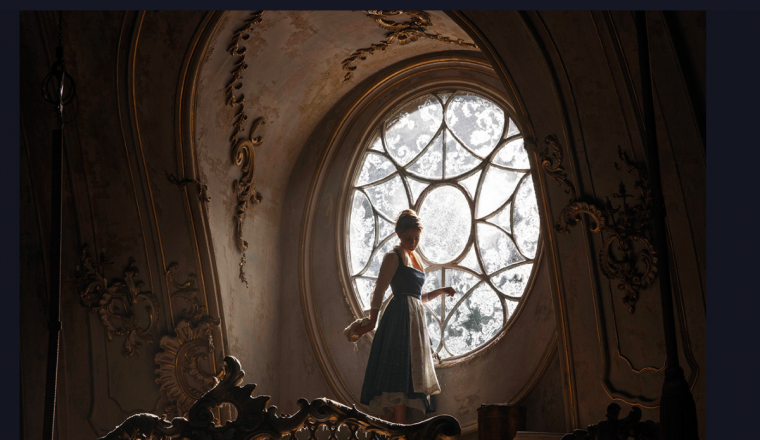Beauty And The Beast Has A Gay Character - What's The Christian Response?

Disney have announced their first openly gay character and love scene. The live-action remake of Beauty and the Beast, which sees British actors Emma Watson and Dan Stevens in the title roles, also features a gay reinterpretation of the comic LeFou character, played by Saturday Night Live regular (and voice of Olaf the snowman) Josh Gad. In an interview with Attitude magazine, director Bill Condon suggests that the pay-off of LeFou's feelings for swaggering anti-hero Gaston is 'a nice, exclusively gay moment in a Disney movie'.
Christian voices have inevitably expressed immediate concern. Reformed Patheos blogger Grayson Gilbert wrote a swift and considered response which articulated that this 'shouldn't shock anyone', but also 'wholeheartedly agree[s] that Christians ought to feel indignation against this.' Similarly, Southern Baptist professor and notable blogger Denny Burk said he was 'disappointed', and that he and his children 'won't be seeing this one'. For both writers, this news only goes to confirm Disney's status as a pro-gay entertainment company, and is another sign of our culture's slide into open rebellion.
Disney has, perhaps strangely, long been heralded as a paragon of virtue by Christians. Despite the fact that there's little Christian influence in the company, the brand is popular among people of faith thanks to its family-friendly output and predisposition toward morality tales. Disney movies tend to 'sort of feel like' Christian stories, regularly dealing in the battle between good and evil, and the redemption of characters who have to overcome a personal battle with some kind of 'sinful' flaw. As a result, Disney film clips regularly pepper sermons all over the world, often making for great visual illustrations of Christian ideas.
In fact, most Disney films fit equally well – if not better – with a humanist worldview. Take the recent, wonderful Moana, which sees a plucky young princess overcoming obstacles to save her people by searching for the hero inside herself. There's plenty of things for Christian viewers to affirm in that story, but no way that it can be co-opted as a faith narrative. Similarly consider Toy Story, in which anthropomorphised plastic characters learn that their path through the universe is down to them, and that they can no longer rely upon the intervention and guidance of the human child they've served and orbited their lives around. Disney doesn't make Christian films, in fact arguably they create alternative faith narratives on a massive scale. If Christians want to be worried about Disney for anything, this seems like a far better reason.
That said, some Christians clearly are concerned about the issue of homosexuality in mainstream cinema. Franklin Graham, who can often be relied upon for the extreme perspective, but who is also hugely influential, was damning of Hollywood's recent decision to recognise Moonlight with a Best Picture Oscar – albeit after a titanic mix-up which took some of the attention away from the film. Graham took to Facebook to label the film as 'glorifying sin', and 'just another example of the LGBT's (sic) agenda to make lifestyle choices that God defines as sin seem more and more culturally acceptable.' He continued: 'I warn families and the church – don't allow your young people to be sucked into Hollywood's dark plan.'
In fact, Moonlight doesn't try to glorify anything. It's a deft, sensitive story about a young man's brutal coming-of-age, and his sexuality is sensitively handled. At no point does Director Barry Jenkins attempt to promote anything more than understanding for young black men trapped in a fatherless culture. But as he admits, Graham hasn't seen the film – he just hates the very idea of it.
Many Christians will almost certainly take the same approach to Beauty and the Beast, which isn't even released until March 17th. The very idea that a gay character is included will be enough for the conservatively-minded to avoid the film completely, and for protective parents to shield their little ones from potentially-infectious gay content. Or to be a little less glib, these people will simply not want to expose themselves or their families to the idea that homosexuality is a legitimate way of being.
Which, in my humble opinion, is madness whatever your theology might happen to be. Like all other Disney films, Beauty and the Beast does not claim to espouse a religious worldview, or to feature Christian characters. Rather, it simply reflects the same sort of pluralistic culture we see around us, in which some people are straight, and some people are gay. Why is it a problem for us to watch a film which only reflects the world as it is?
To rail against Disney for reflecting the diverse audience which enjoys its films seems to me to be spectacularly misguided. Not only does it again cast Christians as the people who stand against, rather than for or alongside others, but it also communicates loud and clear to the LGBT community that Christian love for them doesn't even extend to the point of tolerance. Truth be told, many of us don't even want to look at a gay character, lest it spoil our enjoyment of a good song and dance number.
So what if Christians took a different stance on Beauty and the Beast, one which took the world by surprise? What if instead of condemning and boycotting Disney for including a gay character or relationship, we applauded the company for embracing diversity, and giving us a tool through which to have natural conversations about sexuality with our children? We don't have to subscribe to so-called 'pro-gay theology' in order to have a more generous and kind engagement with the film. Perhaps this time we just don't have to pointlessly stand against a film we haven't even seen yet.
Martin Saunders is a Contributing Editor for Christian Today and the Deputy CEO of Youthscape. Follow him on Twitter @martinsaunders.











